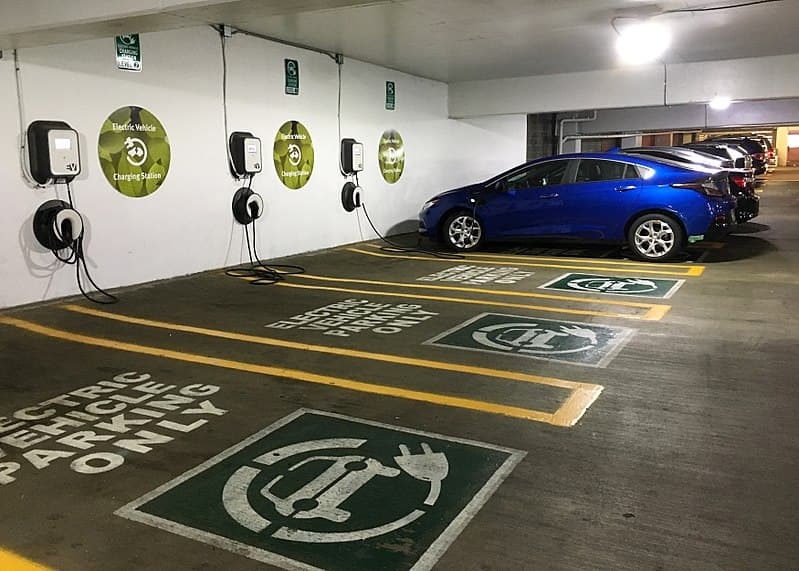For many homeowners, a top concern when looking to purchase an electric or hybrid vehicle is the EV charging stations. Having a home charging station installed is an electrical service that we’re responding to more and more as electric cars become more popular. With the right professional experience, installing a home charging station is less daunting than you may expect.
The first factor to consider is the difference between a Level 1 and a Level 2 charging station. While a Level 1 charging station can be plugged into any 120 volt outlet, some higher-power vehicles require a Level 2 or 240 volt outlet to handle the current needed to recharge the vehicle’s power supply. That being said, a Level 2 outlet does pose additional challenges, particularly if you decide to move homes later on. When it comes to installing a Level 2, 240 volt outlet, here are some things to consider.
Installing Level 2 Home Charging Stations
 Level 2 Home EV charging stations may sound foreign to people who have never worked with electrical wiring before. However, the 240 volt power supply is similar to the kind of heavy duty outlet needed for many home appliances, such as a washing machine or a refrigerator. By installing a higher power outlet in your garage for charging your vehicle, you can cut down on some of the time spent charging overnight and make it easier to recharge your vehicle on a short turnaround time.
Level 2 Home EV charging stations may sound foreign to people who have never worked with electrical wiring before. However, the 240 volt power supply is similar to the kind of heavy duty outlet needed for many home appliances, such as a washing machine or a refrigerator. By installing a higher power outlet in your garage for charging your vehicle, you can cut down on some of the time spent charging overnight and make it easier to recharge your vehicle on a short turnaround time.
As with any electrical work, it is crucial to work with a professional electrician when installing new wiring, as failure to do so can lead to risk of electrical fires, shockage, and even death. If you believe that you may be moving from your current home in the next two to five years, you should talk with your contractor about not hardwiring in the charging station. While hardwiring your home charging station could help reduce some of the heat around the outlet while charging, it also makes removal difficult in the case of relocation. Make sure that your outlet has a capability of at least 24 AMPs for optimal charging of your vehicle. You could also invest in a longer charging cord, at least 25 feet long, to allow you to charge your vehicle without worrying about needing to be next to the charger.
Home charging station installation
When looking to install a home EV charging station, consulting professional electrical contractors is the best and safest way to go. That is why Prairie Electric offers EV charging station installation and consultation in Vancouver, WA. If you would like to set up an installation, or have any questions about EV charging stations in the home, contact us today.



